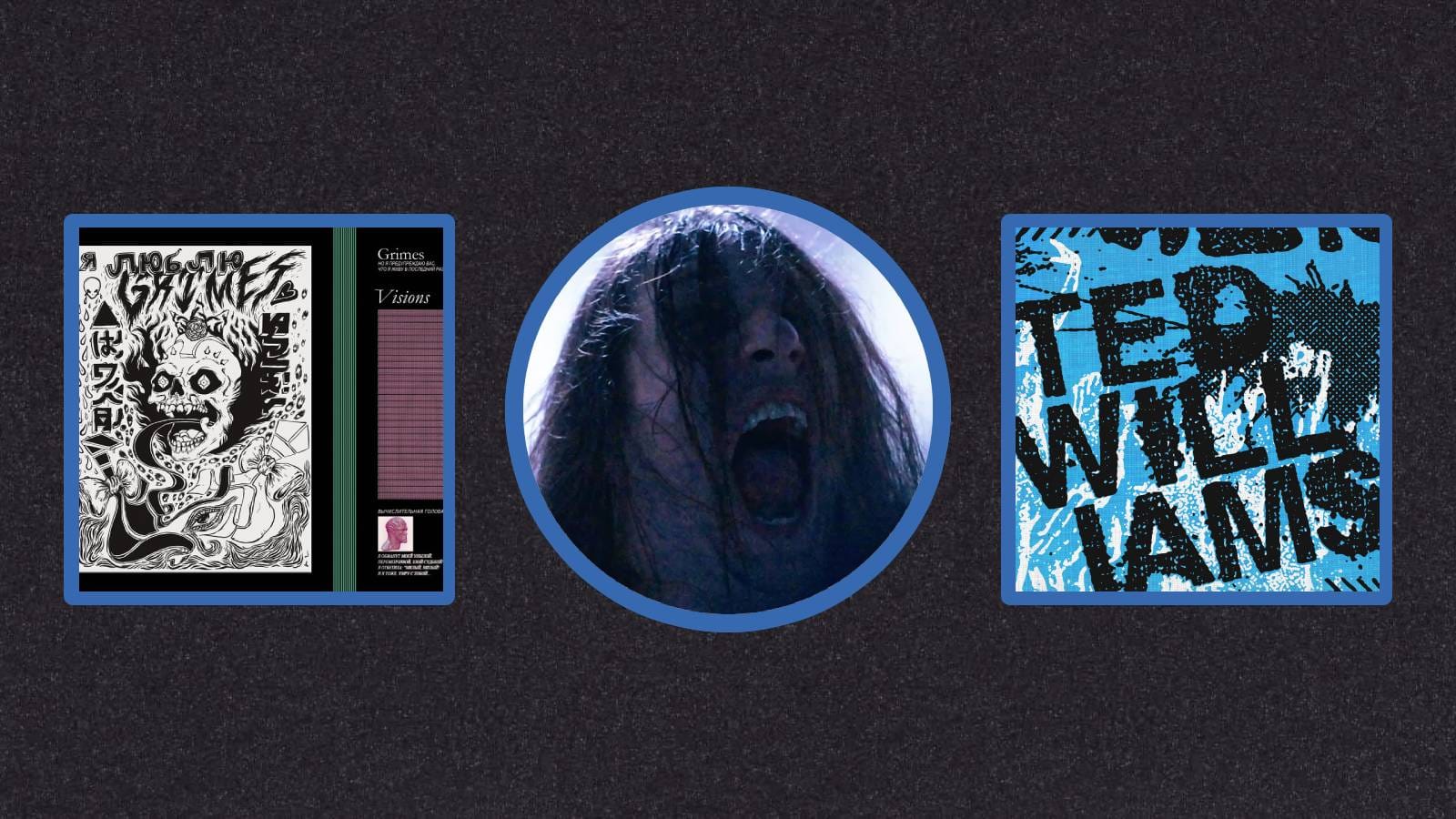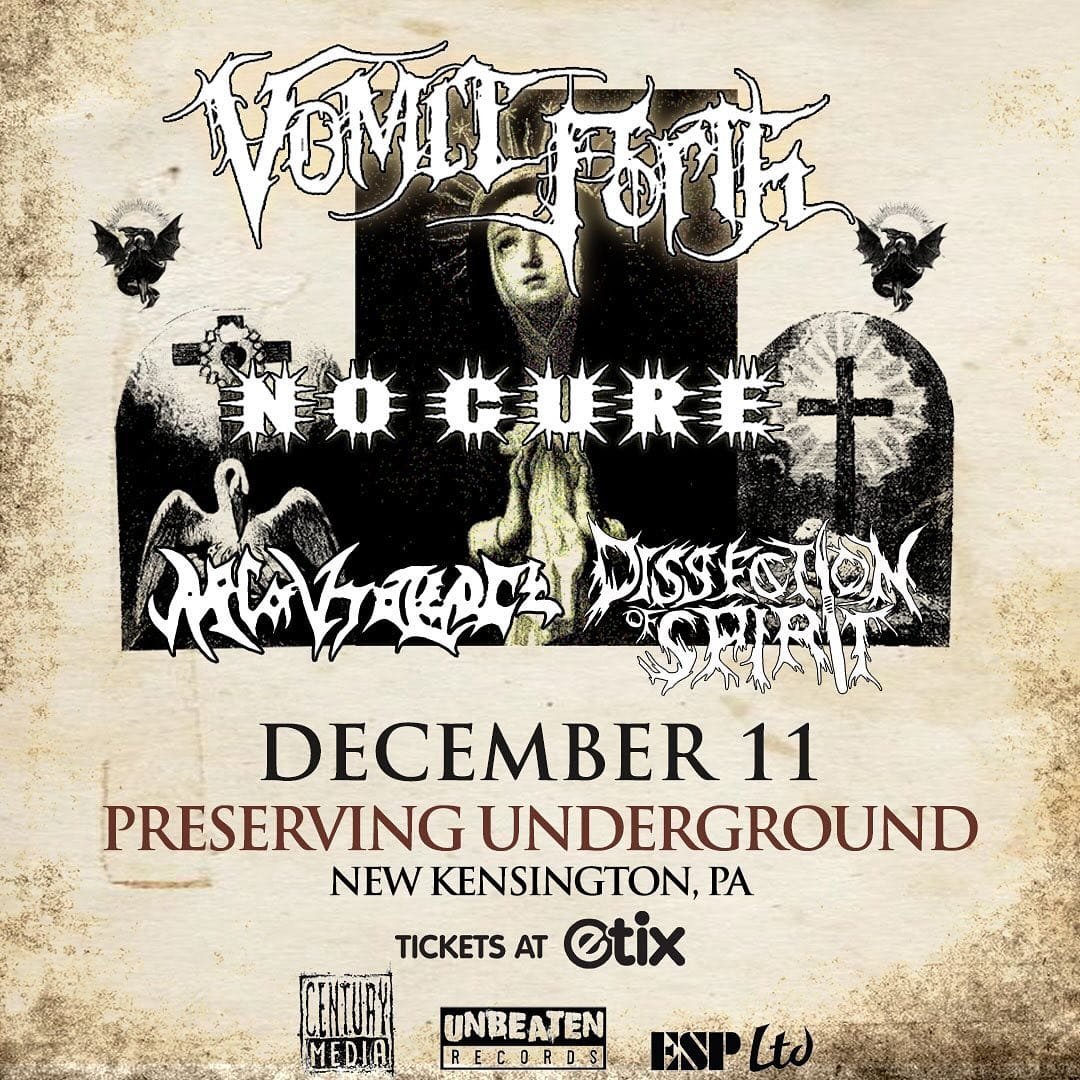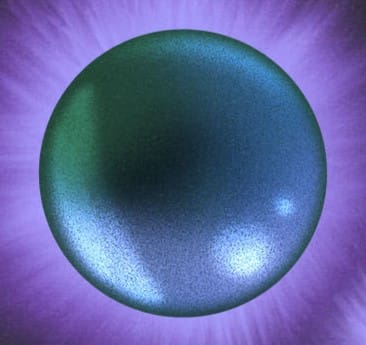Chasing Fridays: Grimes, Ted Williams, Vomit Forth, more
Getting my 'Visions' checked, screamo I actually like, and just making sure I'm different at the hardcore/deathcore twofer.

Aaaand it's Friday again. I've been going a bit nutty over the last week putting together several different year-end lists: a top 10, a top 100 , a hardcore top 10, a sprawling shoegaze songs list. Next week, I plan to publish my top 100 albums/EPs/etc. on Chasing Sundays. In that post, I'll have links to my top 10 albums, which I'll be revealing on Endless Scroll, and my top 10 hardcore albums/EPs/demos, which I'll be revealing on Violent Treatment. My shoegaze list will be published somewhere else, but I'll link that here for my subscribers to check out. For this week's Chasing Fridays, I decided to break form a bit and write about an old record I revisited over the weekend. I also went deep on a screamo demo (something I don't usually do) and reviewed a couple live shows that got the blood flowin'. Next week, it's list time.
If you like what I wrote here and/or in any other article I publish on Chasing Sundays, then I'd appreciate it if you subscribed at the $5/month tier. My paid subscribers (thank you!) provide me with a crucial income stream so I can maximize the number of hours I dedicate to this blog, and also just writing in general. I'm very fortunate to make my living with words, but that's getting harder and harder in this economic climate, so any support is greatly appreciated.
Ted Williams - Demo
When someone asks me if I like screamo, I'm inclined to answer with a simple "not really." It's one of the only sub-styles of hardcore that I have virtually zero interest in. There's one caveat, though. I like screamo that sounds like Ted Williams. Which is to say I like screamo that's so violently extra, so flamboyantly gnarly, so simultaneously unserious and deadly genuine that I can't help but smile like a big fucking idiot when it's pounding out of my living room speakers. The type of screamo Ted Williams make isn't traditional screamo in the vein of Pg. 99 and Orchid. The band's 2024 demo eschews the solemn catharsis of those bands in favor of ratcheting up the genre's most absurdist elements, and crossing streams with other screamo-adjacent styles like sasscore (think Heavy Heavy Low Low) and mathcore (like The Dillinger Escape Plan).
Several Ted Williams fans have made the direct connection between this band's music and an early 2000s group like Tears of Avarel, who pioneered the piercing bird screech vocal delivery that Ted Williams' two frontpeople employ on this demo to great effect. However, even Tears of Avarel's iconography was of a piece with the black and white minimalism of conventional screamo, and their skronky upchucks were threaded with delicate clean-tone noodling that anchored their sound in the Real Screamo/Real Emo milieu. Some people call Tears of Avarel's music emoviolence – a merging of emo and powerviolence, two of the most self-serious genres in punk history – but I don't think that term accurately describes Ted Williams' knowingly demented schtick: the musical equivalent of projectile vomiting your Easter dinner all over the table and then bashfully turning to your mom to chirp, "I phrew up."
Ted Williams don't give a fuck about conventional markers of emo/screamo authenticity. They're shamelessly enamored with how screamo evolved (much to many genre OGs' chagrin) in the mid-2000s when it began swapping cooties with Myspace metalcore, primitive deathcore, and proudly campy sasscore. I would imagine Ted Williams' very young members have a fondness for bands like The Chariot and iwrestledabearonce, as well as other more headsy picks like The Great Redneck Hope and Oktober Skyline. Bands who brought metalcore breakdowns to screamo while still coloring outside the lines of both genres with erratic tempos, convulsive time signatures, and profoundly wacky vocal shrieks.
Ted Williams' demo doesn't synthesize their influences in a way that's remarkably original. Everything from the 2007-ass neon splatter art to the sentence-length song titles is meant to faithfully evoke a sound and epoch of heavy music that occurred when the members of Ted Williams were likely still in primary school. It's a genre exercise in the same way modern d-beat bands studiously replicate the exact song structures, production quality, and logo fonts of Discharge and Anti Cimex. And like those bands, Ted Williams certainly aren't for everyone. In fact, they're most certainly only for a select few, and I just so happen to be one of them. They remind me of music I listened to in high-school, but since they're all a decade younger than me, there's an intangible asymmetry between their music and the source material – and that subtle asymmetry is what I find so fascinating. I'll take four more Ted Williams demos over practically any Deathwish-approved art-house screamo opus.
Grimes - Visions
One of the better Nettspend songs on his new album, BADASSFUCKINGKID, samples Grimes' "Genesis," which gave me an excuse to revisit Visions for the first time in a while. It's still a brilliant album, and likely my favorite Grimes release, but it's hard for me to listen to any pre-Art Angels Grimes without feeling a pang of melancholy. It's the same feeling I get while revisiting Yeezus, which I listened to a bunch last month as part of my annual Kanye binge to commemorate the temperature first dipping below 40. That used to be a purely celebratory tradition, my own version of decorating the tree the night of Thanksgiving, but every year Kanye strays further from the light, dutifully singing along to "Blood on the Leaves" seems more like a cursed sacrifice I have to make to appease the malevolent god of cruel winter.
Visions and Yeezus are both albums that came out in my teens that I didn't actually listen to until my twenties. I don't have any real memories associated with those records from the time period in which they entered the cultural domain. Therefore, the nostalgia they do evoke in my millennial bones is second-hand and also tainted by a certain degree of FOMO. Also, something about Visions just sounds nostalgic. For as much influence as she had on all of the post-PC Music/hyperpop that's defined the last eight-ish years of alt-pop music, it's hard to imagine a contemporary record in that vein as hauntingly minimal as Visions. Despite how hyper-digitized it must've seemed at the time, it actually sounds quaint, even pleasantly primitive, on my 2024-addled ears – especially while downing it right after stepping out the cab of Nettspend's eighteen-wheel slut-truck.
I think Visions is, at its core, a spectral album with an inherently funereal quality. It was always destined to sound like music that would rise from the rubble the morning after the apocalypse. But the specific poignancy I feel while listening to it also has extra-musical dimensions. The album, while dated, is still recent enough that I can remember what life was like when it first arrived. I wasn't alive when My Bloody Valentine's Loveless dropped, or cognizant of rap when Get Rich or Die trying hit the shelves. I do remember life in 2012, and the world has in almost every way gotten worse since then. By the time I entered the music journalism workforce after college, that era of new media – of which Grimes was a posterchild for, from the "Oblivion" music video to her Fader TV interviews – was already a distant memory.
Whatever thrilling possibilities Silicon Valley toted in the early 2010s era of platform internet optimism and digital journalism bullishness had crumbled away by the late 2010s, replaced by the cold supremacy of exploitative streaming services and data-mining social media sites that hurt your brain to use. The vibes turned bad, and the music Grimes made when she was the apex of cool is now associated in my mind with the end of Good Internet and the beginning of our dismal present. A timeline where Grimes herself has mothered two children with the rancid figurehead of techno-fascist dystopia. Shit's just sad, man.
However unstable the floors of neoliberalism were in 2012, Visions once felt like a glance into a future of hope and possibility. A dispatch from a timeline that was worth racing to get to. Now, its ghastly beauty is a sobering reminder of how many times the bottom has fallen out in the years since. It no longer symbolizes visions of a brighter, cooler future, but fading memories of a simpler, more optimistic past. The songs still rule, though.
Armor, Peace Talks, Illiterates, EKGs @ Rock Room

I'm writing this while the sweat's still stuck to my shirt, my clothes reek of cigarettes, and my bangs are still crusty from dried beer. This show was a fuckin hoot. Hardcore gigs at the Rock Room can be hit or miss. People either stand there slurping beers and chiefing cigs but not moving, or the wild ones hit the dancefloor. The more fun scenario happened tonight. The bar was packed to the brim by the time EKGs (members of Speed Plans, Gaadge, Ex-Pilots, more) took the stage, and the place was more crowded than I've ever seen it when Armor ended their set.
The mark of a great hardcore show is when you can't remember which projectile got thrown during which set, or which song made the gaggle of slammers fall into a writhing flesh puddle on the muddy floor, because that shit happened during every band. Illiterates and Peace Talks are two of the best active groups in Pittsburgh's beer-and-back-patch lane of hardcore, but I've often seen them get muted responses by stilted punks who don't know how to move. Tonight, people were flinging themselves around like morons and keeping the limited headroom between our hair and the rotted ceiling filled with a steady rain of empty – and not-so-empty – bottles and cans.
Armor, however, got the best response. The Florida d-beat band took five years to follow up their beloved Some Kind of War EP with this year's Afraid of What's to Come, a lean and blistering set of barky hardcore sprints that occasionally slow down juuust enough to give the moshers their instructions ("Ok, now SLAM," the two-step part in "Fodder" cries out). Pittsburgh ate that shit up. Armor had to stop more than a couple times to either tune or give their winded drummer a break to chug some water. Rock Room is a windowless crust bar where people smoke inside, and the graffiti-covered walls were dripping with all forms of gnarstiness tonight. It was difficult to catch my breath after escaping the pit because there was very little free air in the room to inhale. It was everything I want from a hardcore show of this variety to be: a little dangerous, a lotta disgusting, and so much goddamn fun.
Vomit Forth, No Cure, Arc of Violence, Dissection of Spirit @ Preserving Underground

Alas, I was the only person in Pittsburgh who had a hankering for d-beat and hardcore-approved deathcore in the same week. I know, I know, such a heavy burden to bear. I just couldn't miss seeing No Cure and Vomit Forth, two of the more popular bands straddling metallic hardcore and deathcore – a milieu I've written about quite a bit this year because I find this blend of music wildly fascinating, if not always on a musical level, then definitely on a cultural one. It's hard to explain to someone who's not ingrained in this scene that, yes, I went to go see a couple deathcore bands who sound like the Acacia Strain. But no, it didn't look like a band miming along to backing tracks behind a 20-foot barricade while a bunch of off-duty marines pushed each other around like dingbats.
It was a hardcore show. The room was filled with the same zoomers who run the pit at every heavy hardcore show in Pittsburgh – self-identifying "hardcore kids." The pit was exclusively people hardcore dancing (spin-kicks, windmills, an impressive number of cartwheel crowdkills). In some instances, such as the smaller city I grew up in (Rochester), hardcore and metalcore are blended into one scene because there's not enough people to go around to have everyone filed into their own genre-specific factions. That's not the case in Pittsburgh, and that's not why hardcore fans are embracing certifiable deathcore bands like Vomit Forth. They simply just like the music. Partially because Vomit Forth, and especially No Cure, retain hardcore elements in their songs (gang vocals, mosh parts, two-step sections). But mostly because this stuff is extremely fun to dance to in the live setting.
I feel the need to write defensively about Vomit Forth because no one writing professionally about music is taking note of what's happening to this sound in the 2020s. It's really easy, especially for people my age who lived through previous iterations of deathcore and metalcore as teenagers, to write bands who sound like that off as anachronistic retreads. To just assume that the audiences look and behave the same way as they did at Warped Tour in 2010. As someone who was into metalcore/deathcore in high-school, then realized hardcore was cooler in college and had no desire to ever go back, I can say from many lived experiences that the metalcore/deathcore being recontextualized by hardcore kids today is a fucking blast. This music is finally fun to see live again because there's a youthful energy in the room, a violent spectacle in the pit, and most importantly, no commercial ambitions among the bands to escape hardcore and cash in at buttrock festivals.
Vomit Forth's vocalist shouted out a different Pittsburgh hardcore band before each song because he genuinely loves the genre, and the members of those bands moshed accordingly in the pit. Still skeptical? Go see Vomit Forth, No Cure, Thus Spoke Zarathustra, Corpse Pile, Pyscho-Frame, or motherfucking Torture. And when you do, make sure to protect your fuckin' neck.

